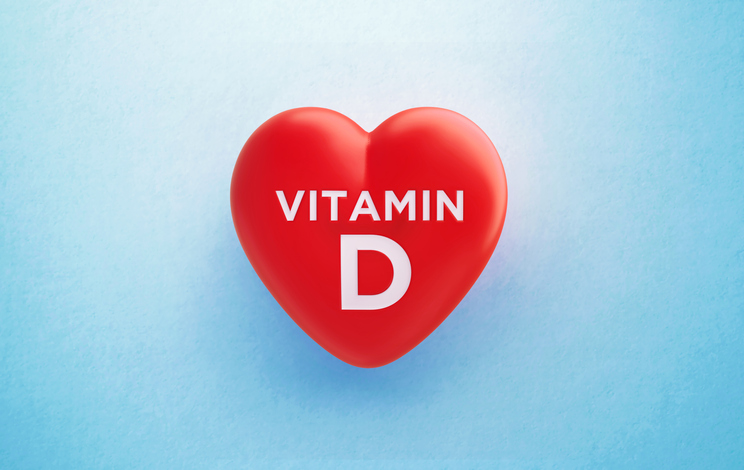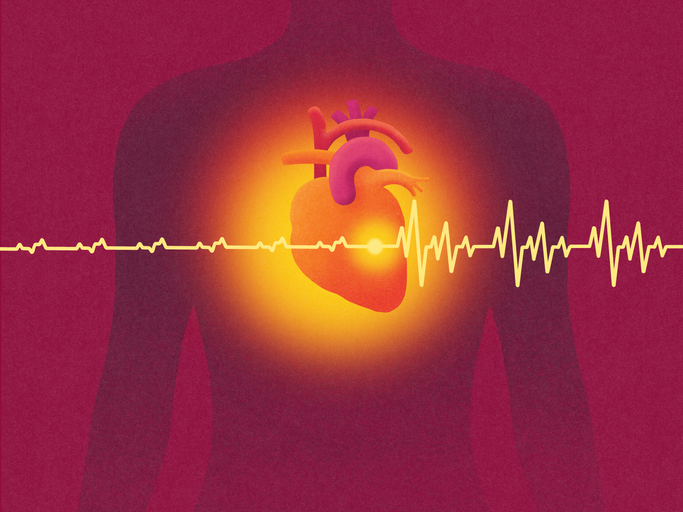Why Vitamin D May Be One of the Keys to Healthy, Happy Longevity

By Joy Stephenson-Laws, JD, Founder
I have both good and bad news. The good news is that more people are living longer.
“People worldwide are living longer. Today most people can expect to live into their sixties and beyond. Every country in the world is experiencing growth in both the size and the proportion of older persons in the population," according to the World Health Organization (WHO).
“By 2030, 1 in 6 people in the world will be aged 60 years or over…By 2050, the world’s population of people aged 60 years and older will double (2.1 billion).”
The bad news is that with older age comes a greater risk of cardiovascular disease (CVD) and serious CVD events such as heart attacks and strokes. Heart disease is the leading cause of death in both American men and women and has been for quite some time.
Fortunately, I have more good news. We can be proactive and increase our chances of achieving healthy longevity with a variety of tools. Most of you probably know that being active, maintaining a healthy weight (or ideally body composition) and eating a healthy, nutrient-rich diet are great ways to reduce the risk of cardiovascular disease and events. What you may not know, however, is that you might also want to consider adding vitamin D to that proactive healthcare arsenal for achieving healthy longevity and preventing or managing CVD.
Vitamin D is an interesting micronutrient, because it is produced in the body. Also known as the “sunshine vitamin” (because it is produced in the skin in response to sunlight), vitamin D is one of those nutrients that is crucial for maintaining our overall health. Along with helping build and maintain strong bones, vitamin D may balance insulin levels and help with the management of diabetes, support lung function and cardiovascular health and even influence the expression of genes involved in cancer development. A deficiency in this micronutrient may even increase the risk of premature death.
A recent study found evidence suggesting that people over the age of 60 who take vitamin D supplements reduce their risk of having a cardiovascular event such as heart attack or stroke. The research was conducted in Australia and included 21,315 Australians (ages 60-84). About half of the participants were given a vitamin D supplement of 60,000 IU while the remaining participants received a placebo. These were taken by mouth at the beginning of each month for a duration of five years.
The researchers took account of hospital admissions and deaths from CVD events such as heart attacks, strokes and coronary revascularisation (which is a procedure to restore blood flow in blocked arteries or veins).
“The rate of major cardiovascular events was 9% lower in the vitamin D compared with the placebo group (equivalent to 5.8 fewer events per 1,000 participants),” according to this recent Medical Xpress report that discusses the study.
“The rate of heart attack was 19% lower and the rate of coronary revascularization was 11% lower in the vitamin D group, but there was no difference in the rate of stroke between the two groups.”
Furthermore, “There was some indication of a stronger effect in those who were using statins or other cardiovascular drugs at the start of the trial, but the researchers say these results were not statistically significant.”
Although not statistically significant, there was still some indication that if people are already on drugs to treat cardiovascular issues they may have a better outcome if they also supplement with vitamin D.
Vitamin D and inflammation.I want to bring attention to another recent study conducted in Ireland which found evidence suggesting that low vitamin D levels are associated with higher amounts of inflammation in older adults.
"This study is very important given the high prevalence of vitamin D deficiency and chronic disease in older adults living in Ireland. Our findings along with previous trials in this area suggest that optimizing vitamin D status to above deficient levels could help to benefit the inflammation pathway in community dwelling older adults,” said Dr. Eamon Laird, lead study author who was referenced in this Medical Xpress report.
Keep in mind that inflammation is believed by many in the medical community to be the root cause of cardiovascular disease.

It is always good to take a nutrient test in order to identify what your vitamin D level is. Do not assume you are deficient and then just supplement. This can be dangerous and detrimental to your health. I highly recommend reading this pH blog about a man who experienced vitamin D intoxication from a supplement overdose. If a nutrient test reveals you are deficient in vitamin D, a competent healthcare professional can help you find a quality supplement and instruct you on how to take it safely.
Remember, there are so many ways we can be proactive to increase the chance of happy and healthy longevity.
Enjoy your healthy life!
Disclaimer: This article is not intended to provide medical advice. Please consult with your doctor or another competent healthcare practitioner to get specific medical advice for your situation.
The pH professional health care team includes recognized experts from a variety of health care and related disciplines, including physicians, attorneys, nutritionists, nurses, and certified fitness instructors. This team also includes the members of the pH Medical Advisory Board, which constantly monitors all pH programs, products, and services. To learn more about the pH Medical Advisory Board, click here.







